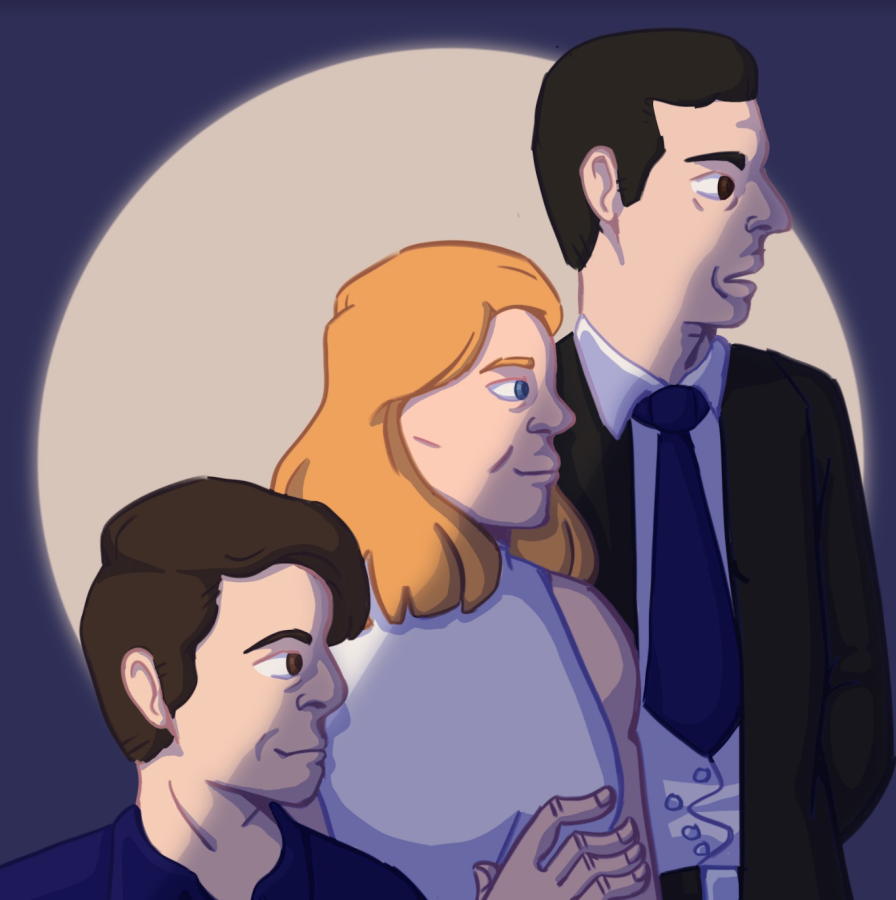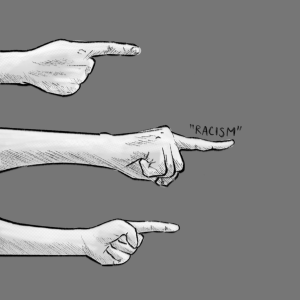HBO’s “Succession” Is The Best Series Out Now
February 4, 2022
Contains minor spoilers!
HBO’s newest triumph, Succession, has pierced today’s zeitgeist like a hot knife through butter (not to mention its eerily catchy theme). Released in October, Season 3 is nothing less than a masterpiece. This dramedy follows the Roy family, scrappy streetfighters with the power of gods.
Throughout Succession, each Roy has a corresponding “outsider” to abuse. Logan Roy, CEO of media empire Waystar Royco, sits at the top, exerting his power over his cunning and greedy children: Kendall, Roman, Con, and Shiv. The Roy children in turn lord over inferiors of their own—with the exception of Kendall, the damaged but ambitious underdog. Despite the Roys’ omnipotence and staggering wealth, they tend to underestimate their underling “outsiders”: the in-laws, cousins, and corporate aides who serve them. By the Season 3 finale, the outsiders begin to accumulate dangerous power amidst the Roys’ in-fighting chaos. Succession is more than rich people misbehaving. Its ingenuity lies in writing that brilliantly balances comedic timing, scathing banter, human relationships, and contemporary and historical references to craft the best series out right now.
Succession’s creator, Jesse Armstrong, and his writing room are well-read, to say the least. Shakespeare’s King Lear inspires Succession’s central plotline as Logan Roy’s looming death begs the question: which child will succeed his throne? Mix in Season 2’s guilt-ridden murder inspired by Dostoyevsky’s Crime and Punishment and Season 3’s Hamlet-esque finale, and Succession easily classifies as high art.
Moreover, Succession reveals motivations and backstories sparingly and ingeniously through subtle camera work; its zooms and pans are reminiscent of The Office, emphasizing lines, glares, and perspective documentary-style. For instance, in Season 1, we see brief glimpses of Logan’s vulnerability, such as in a quick glimpse at his since-calcified scars from childhood abuse as he emerges from a pool, or his slowly changing demeanor as his mind deteriorates from dementia.
The series’s pilot begins as business-savvy middle child Kendall is denied the role of CEO by Logan on Logan’s 80th birthday. Soon after, Logan suffers an unexpected aneurysm. Kendall makes it his (unsuccessful) mission to galvanize his siblings to help him usurp the CEO role he feels he deserves. This begins Kendall’s brutal pattern of failed plans that spark his self-destructive tendencies, addiction, and crusade against his father—and the family.
Still, Succession does well to lull us into pity for Kendall and the other Roys, just to remind us of their insidiousness. In one episode, Logan blackmails the President after POTUS refuses to get Waystar Royco out of a Congressional hearing (Logan has his battalion of right-wing media outlets stir slanderous rumors about POTUS). In another episode, Kendall justifies his addiction, the abandonment of his family, and his self-destructive crusade for CEO by hiring an all-women legal team, just to fire them when they challenge his intellect. Even Shiv, the daughter, claims moral purity early into the series, avoiding the family business by managing liberal political campaigns; until she realizes she could become CEO—swiftly losing her moral high ground to join with conservative Waystar Royco.
Ultimately, while Succession’s characters are deplorable, the intimate camera work, coupled with the heartbreakingly human tales of family tension and betrayal, make it easy to feel empathy for the Roys—even when we don’t want to.









